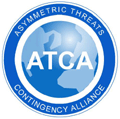
Fighting Fire with Fire?
The Limits to
Knowledge in Financial (Re)Engineering
London, UK - 1st May 2008, 07:46 GMT
Dear ATCA Colleagues
[Please note that the views presented by individual contributors
are not necessarily representative of the views of ATCA, which is neutral.
ATCA conducts collective Socratic dialogue on global opportunities and threats.]
We are grateful to Prof Joseph Mason, a distinguished ATCA
Contributor; Senior Fellow at Wharton School, University of Pennsylvania;
Moyse/Louisiana Bankers Association Chair of Banking at the Ourso School
of Business, Louisiana State University; and Financial Industry Consultant
at Criterion Economics, for his timely submission. He writes:
Dear DK and Colleagues
Re: Fighting Fire with Fire? The Limits to Knowledge in Financial (Re)Engineering
Despite the fact that "creative" subprime lending schemes started
the current crisis, a number of key proposals from Capitol Hill, Washington
DC, continue to push the idea that more creativity built upon existing failed
ideas, can aid borrowers. There are many reasons to be sceptical of the
results:
[CONTINUES]
[ATCA Membership]
Best wishes
Joseph Mason
Prof Joseph Mason is the Moyse/Louisiana Bankers Association Chair of Banking
at the Ourso School of Business, Louisiana State University, a Fellow at
the Wharton School, Financial Industry Consultant at Criterion Economics,
and a Visiting Scholar at the Federal Deposit Insurance Corporation. Professor
Mason teaches in the areas of corporate finance, financial markets and institutions,
and risk management and derivatives. Prior to joining Louisiana State University,
he was an Associate Professor of Finance at Drexel University's LeBow College
of Busin, a Financial Economist with the Office of the Comptroller of the
Currency and Adjunct Assistant Professor of Finance at Georgetown University
School of Business. His research spans the fields of corporate finance,
financial intermediation, financial history, and monetary economics, focusing
on issues related to both theory and public policy. He is the recipient
of research grants or awards from the National Science Foundation, the Federal
Reserve Bank of St Louis, Drexel University, and the University of Illinois.
He serves or has served as advisor and consultant to many agencies and firms,
including the Federal Deposit Insurance Corporation, the Federal Reserve
Bank of Philadelphia, The Conference Board, the G-30, the World Bank Group,
and numerous private firms. He is a member of the American Finance Association,
the Financial Management Association, the Cliometrics Society, the Economic
History Association, Beta Gamma Sigma, and Omicron Delta Epsilon.
Prof Mason has published academic articles in the American Economic Review;
Journal of Business; Journal of Money, Credit, and Banking; Journal of Banking
and Finance; Pacific-Basin Finance Journal; Journal of Financial Services
Research; Research in Banking and Finance; and Explorations in Economic
History, and book chapters in Resolution of Financial Distress (World Bank
Group, Stijn Claessens, et al, eds); Privatization, Corporate Governance
and Transition Economies in East Asia (NBER, Takatoshi Ito and Anne Krueger,
eds); and Too-Big-To Fail: Policies and Practices in Government Bailouts
(Greenwood Publishing, Benton E Gup ed). Prof Mason's current research projects
include investigating the micro and macroeconomic effects of bankruptcy
and liquidation procedures; the incidence and cost of systemic risk; and
the management of idiosyncratic risks posed by new forms of bank lending,
asset-backed securities, collateralised debt obligations (CDOs) and securitization.
His work has been cited or published in the New York Times, Washington Times,
the Economist, Wall Street Journal, Associated Press, Reuters, Bloomberg,
KnightRidder Syndicate, MarketWatch-Dow Jones Newswire, MIST News, Financial
Times, Barrons, Business Week, die Zeit, Investment Dealers Digest, American
Banker, BNA's Banking News, Realty Times, Toronto Globe & Mail, the
Philadelphia Business Review, and on CNBC, NBC Nightly News. He has made
numerous live appearances on CNBC, Bloomberg Television, Comcast CN8 News,
WBBM Radio Chicago, WHYY Public Radio Philadelphia, and WWDB Talk Radio
Philadelphia.
To reflect further on this, please click here
and read views as well as respond directly within the online forum.
We welcome your thoughts, observations and views. Thank you.
Best wishes
ATCA: The Asymmetric Threats
Contingency Alliance is a philanthropic expert initiative founded
in 2001 to resolve complex global challenges through collective
Socratic dialogue and joint executive action to build a wisdom
based global economy. Adhering to the doctrine of non-violence,
ATCA addresses asymmetric threats and social opportunities arising
from climate chaos and the environment; radical poverty and microfinance;
geo-politics and energy; organised crime & extremism; advanced
technologies -- bio, info, nano, robo & AI; demographic skews
and resource shortages; pandemics; financial systems and systemic
risk; as well as transhumanism and ethics. Present membership
of ATCA is by invitation only and has over 5,000 distinguished
members from over 120 countries: including 1,000 Parliamentarians;
1,500 Chairmen and CEOs of corporations; 1,000 Heads of NGOs;
750 Directors at Academic Centres of Excellence; 500 Inventors
and Original thinkers; as well as 250 Editors-in-Chief of major
media.
The Philanthropia, founded in 2005, brings together over
1,000 leading individual and private philanthropists, family offices,
foundations, private banks, non-governmental organisations and
specialist advisors to address complex global challenges such
as countering climate chaos, reducing radical poverty and developing
global leadership for the younger generation through the appliance
of science and technology, leveraging acumen and finance, as well
as encouraging collaboration with a strong commitment to ethics.
Philanthropia emphasises multi-faith spiritual values: introspection,
healthy living and ecology. Philanthropia Targets: Countering
climate chaos and carbon neutrality; Eliminating radical poverty
-- through micro-credit schemes, empowerment of women and more
responsible capitalism; Leadership for the Younger Generation;
and Corporate and social responsibility.
Intelligence Unit | mi2g | tel +44 (0) 20 7712 1782 fax +44
(0) 20 7712 1501 | internet www.mi2g.net
mi2g: Winner of the Queen's Award for Enterprise in the category
of Innovation
|

